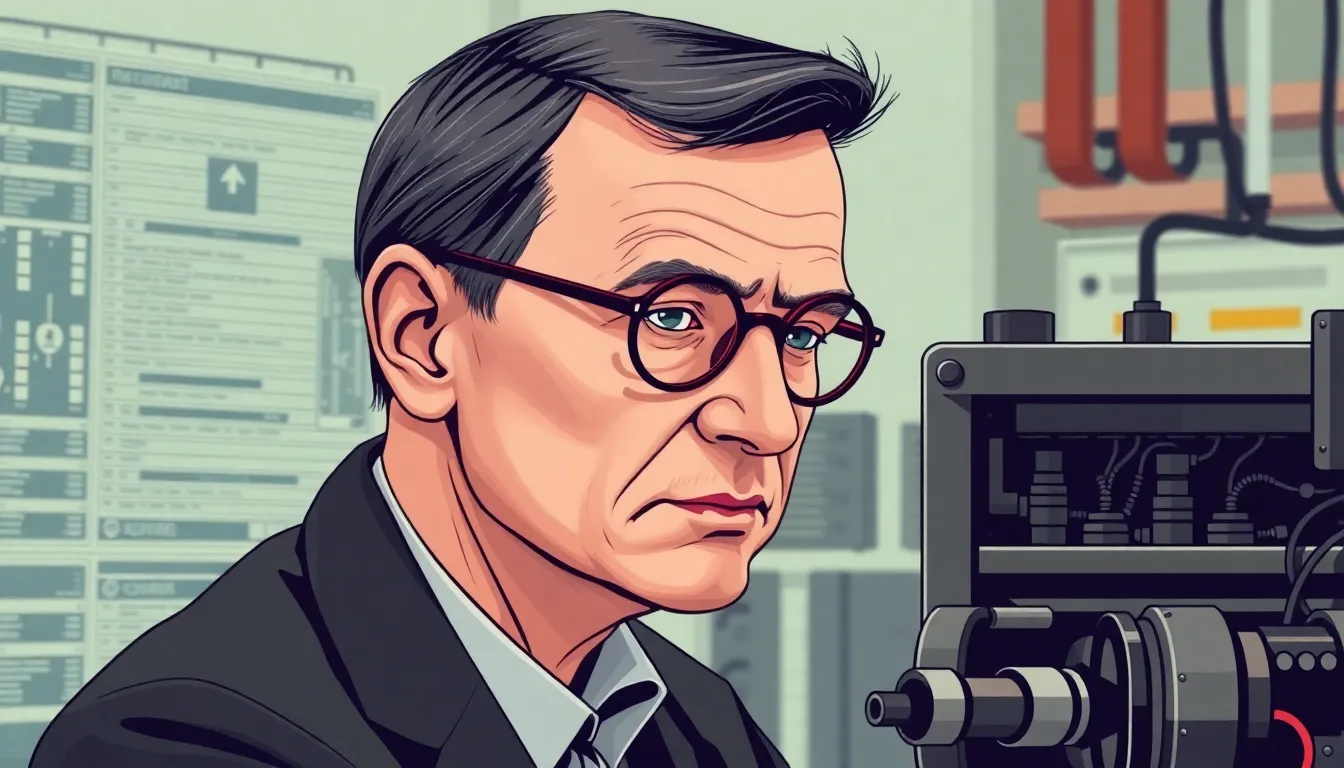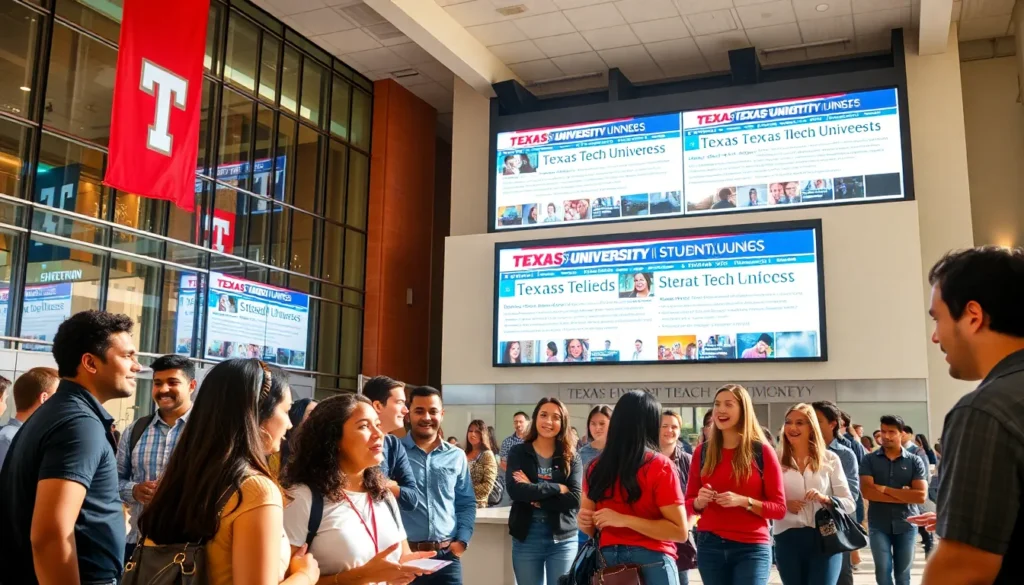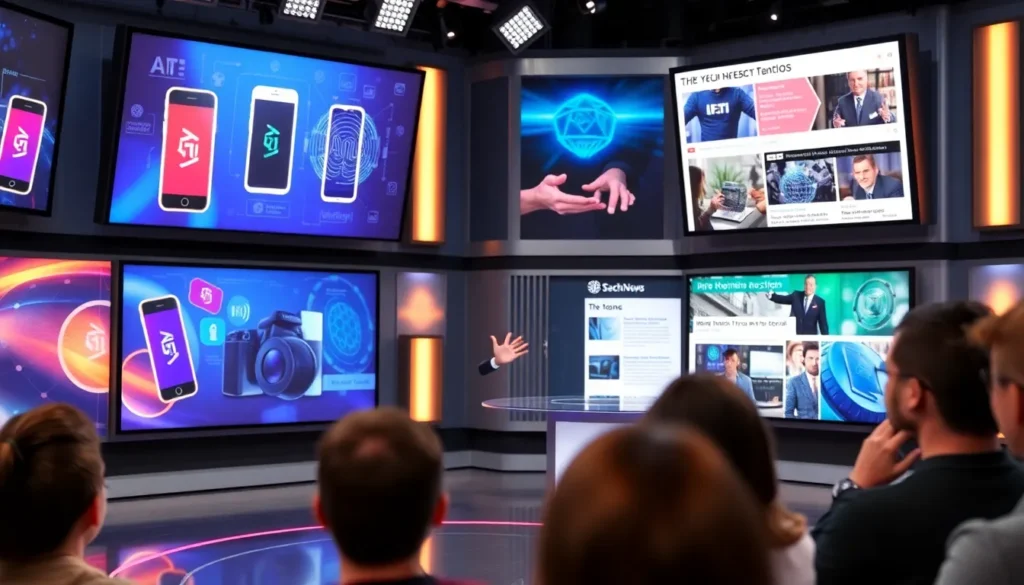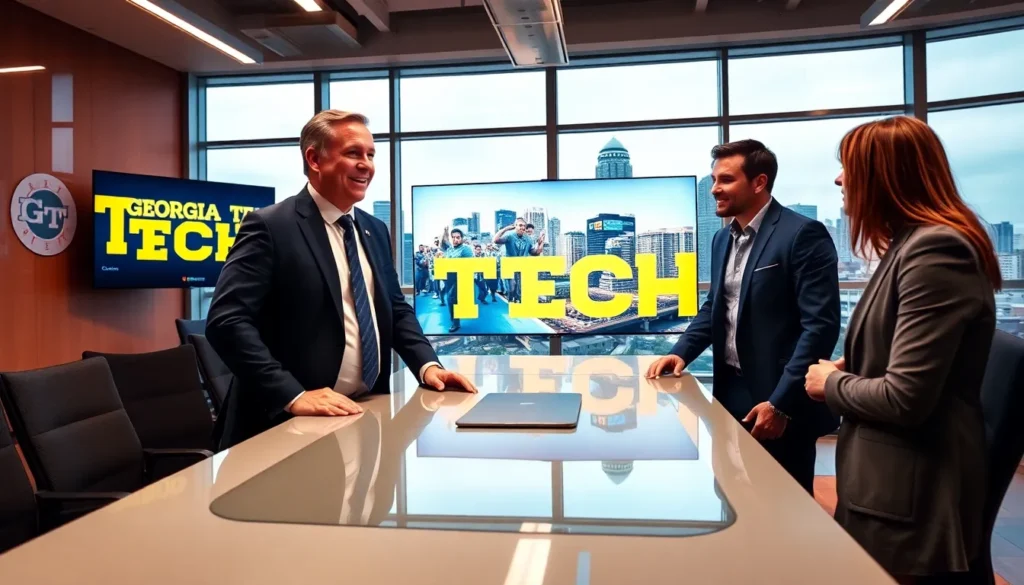When it comes to the realm of artificial intelligence, one name stands out like a beacon in the tech fog: Alan Turing. Often dubbed the “father of artificial intelligence,” Turing didn’t just think outside the box; he redefined what the box could be. With a mind sharper than a freshly sharpened pencil, he laid the groundwork for machines that could think and learn.
Table of Contents
ToggleThe Father of Artificial Intelligence
Alan Turing’s contributions significantly shaped the development of artificial intelligence. He introduced the Turing Test, a benchmark for evaluating a machine’s ability to exhibit intelligent behavior. This test remains relevant in discussions about AI capabilities today.
Furthermore, Turing developed concepts related to algorithmic processes and computational theories. His 1936 paper on Turing machines established a foundation for modern computer science, influencing how machines process information. Innovations from Turing’s work laid groundwork for future advancements in AI technologies.
In addition, Turing’s insights into problem-solving in machines provided a framework for understanding machine learning. By exploring the limits of computability, he demonstrated potential pathways for creating intelligent systems. His ability to envision a future with thinking machines pushed the boundaries of what was possible.
Turing’s legacy extends beyond theoretical concepts; his contributions helped accelerate the practical implementation of AI. Researchers and pioneers have long cited him as a major influence in the field. For instance, many AI algorithms trace their origins back to principles articulated by Turing.
Overall, his visionary ideas continue to inspire and drive innovation in artificial intelligence. Recognition of Turing’s role in establishing AI as a scientific discipline remains essential. His work exemplifies the intersection of creativity, logic, and scientific inquiry, positioning him as the father of artificial intelligence.
Key Contributions

Alan Turing’s work laid the groundwork for artificial intelligence through groundbreaking theories and publications. His innovative approach revolutionized how machines process information and think.
Early Theories and Concepts
Turing introduced early theories that addressed the potential for machines to think like humans. Concepts such as the Turing Test established a protocol for evaluating intelligent behavior in machines. Proponents of Turing’s ideas emphasized algorithmic processes, which clarified how machines can learn and solve problems. His formulation of the concept of computable functions marked a significant step in understanding the limits of computational systems. Experts continue to reference these foundational concepts in AI discussions today.
Foundational Work and Publications
In 1936, Turing published a seminal paper on Turing machines, which established key principles for modern computing. This work outlined theoretical limits on what machines can compute, influencing subsequent developments in computer science. Subsequent publications expanded on his theories, driving advancements in artificial intelligence and machine learning. The insights from his publications provided critical frameworks that current AI research relies on. Scholars acknowledge Turing as a pivotal figure whose foundational work has had a lasting impact on the field.
Major Achievements
Alan Turing’s contributions to artificial intelligence encompass groundbreaking projects and notable recognition in the field. His work continues shaping modern AI.
Significant Projects and Programs
Turing worked on the development of the Bombe machine, essential for deciphering Enigma-encrypted messages during World War II. This machine significantly impacted war strategies. Additionally, Turing’s conceptual framework through Turing machines laid the foundation for modern computation. His early insights into algorithmic processes allowed future researchers to explore machine learning. Turing also developed the idea of a universal machine, demonstrating how a single machine could simulate any computation, radically changing perspectives on computer design.
Awards and Recognition
Turing’s influence extends beyond his lifetime, with numerous honors recognizing his groundbreaking work. In 1966, the Association for the Advancement of Artificial Intelligence established the Turing Award, often regarded as the “Nobel Prize of Computing.” This prestigious award celebrates individuals who have made substantial contributions to computing. In 2013, the British government posthumously pardoned Turing for his 1952 conviction, acknowledging the injustice he faced. His legacy remains pivotal in discussions surrounding ethics in AI, highlighting the importance of Turing’s work in today’s technological landscape.
Impact on Modern AI
Alan Turing’s contributions significantly shaped the landscape of modern artificial intelligence. His innovative concepts laid the groundwork for ongoing advancements and research in this field.
Influence on Technology and Research
Turing’s theories inspired developments in machine learning algorithms and programming languages. Research in neural networks reflects his principles of computation, emphasizing problem-solving capabilities. Many contemporary AI systems utilize Turing’s foundational ideas, fostering breakthroughs in natural language processing and computer vision. Innovations like reinforcement learning owe much to Turing’s early work on decision-making processes. AI researchers frequently cite Turing’s tests and concepts in academic papers, showcasing his enduring influence on technology.
Legacy in the Field
Turing’s legacy endures through awards and honors that bear his name. The Turing Award acknowledges outstanding contributions to computing, often likened to the Nobel Prize for its prestige. Educational institutions highlight his theories in curricula, ensuring new generations understand his impact. Ethical discussions in AI frequently reference Turing’s work, pointing to the need for responsible development. A celebration of Turing’s achievements unfolds at conferences and symposia, where his ideas continue to inspire innovation and exploration.
Alan Turing’s legacy as the father of artificial intelligence is undeniable. His groundbreaking theories and innovative concepts laid the foundation for modern computing and AI. Turing’s work not only transformed how machines think and learn but also continues to inspire advancements in technology today.
As scholars and practitioners in the field reflect on Turing’s contributions, they recognize the importance of his insights in shaping ethical discussions and future innovations. His influence is felt across various domains of AI, ensuring that his vision remains a guiding force in the ongoing exploration of intelligent systems. Turing’s remarkable journey serves as a reminder of the profound impact one individual’s ideas can have on the world.









